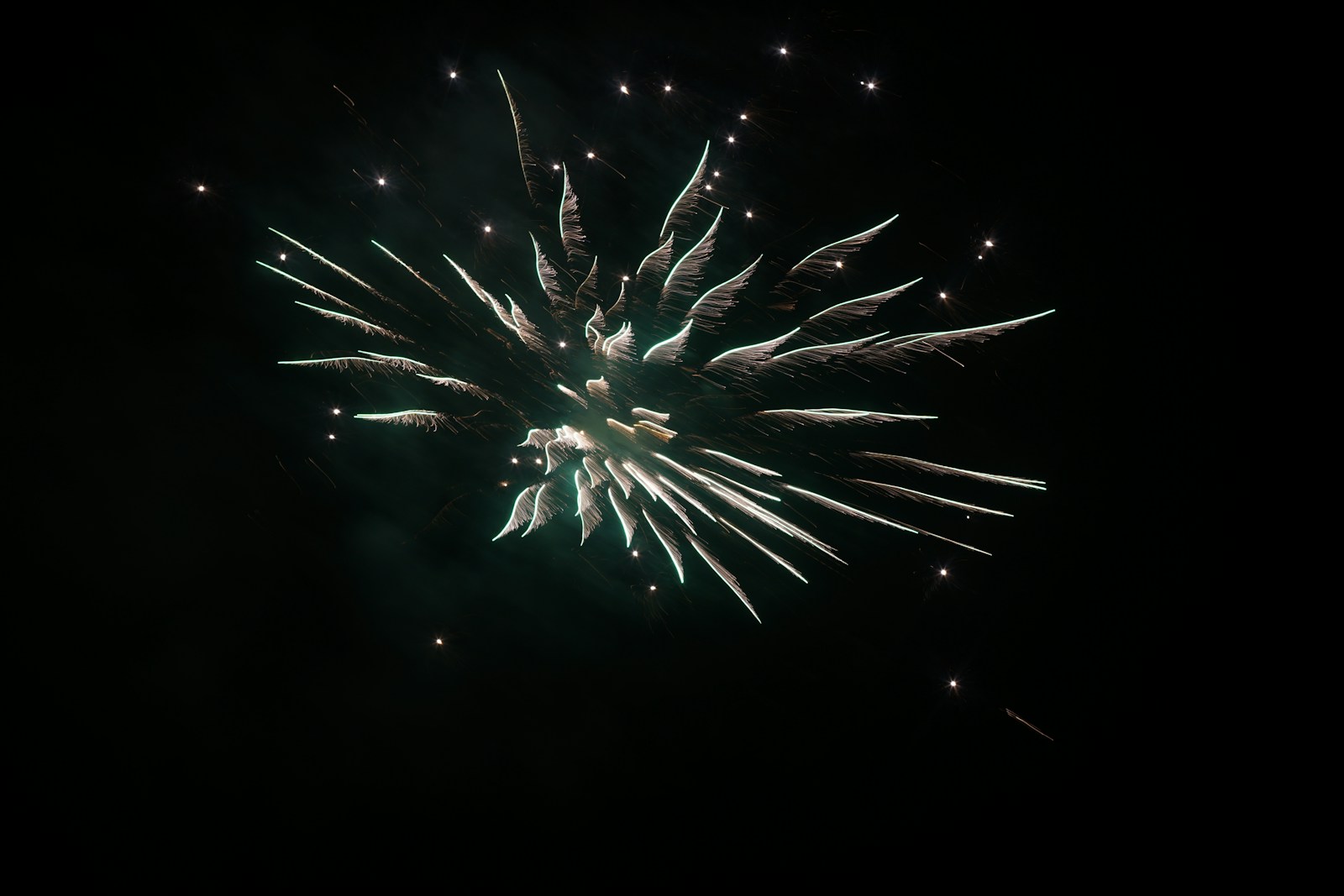
feux d'artifice

fireworks
The French term 'feux d'artifice' is used to refer to fireworks, particularly those used during celebrations like New Year's Eve or Bastille Day in France. It is usually used in the plural form given the collective nature of fireworks. It's important to remember the phrase in its entirety, as 'feux' on its own refers to 'fires' and 'artifice' can mean 'trickery', but together they make up the term for fireworks.
Example sentences using: feux d'artifice
Nous allons regarder les feux d'artifice ensemble.

We are going to watch the fireworks together.
This sentence is expressing a future action that the speaker and the listener are going to do together, which is watching the fireworks.
Les feux d'artifice pendant la fête nationale sont magnifiques.

The fireworks during the national holiday are beautiful.
In this sentence, the speaker is expressing an opinion about the beauty of the fireworks that are typically fired during a national holiday.
J'ai peur des feux d'artifice.

I am afraid of fireworks.
The person speaking in this sentence is expressing a personal fear towards fireworks.
Les feux d'artifice illuminent le ciel nocturne.

The fireworks illuminate the night sky.
This sentence depicts a scene where fireworks are lighting up the night sky.
Il vend des feux d'artifice pour gagner sa vie.

He sells fireworks to make a living.
In this sentence, the person being referred to is engaged in selling fireworks as a means of earning income.
Les feux d'artifice peuvent être dangereux s'ils ne sont pas utilisés correctement.

Fireworks can be dangerous if not used correctly.
This sentence is warning about the potential hazards of incorrectly using fireworks.
Je me souviens des feux d'artifice de notre premier rendez-vous.

I remember the fireworks from our first date.
This sentence is expressing a memory associated with their first date, which involves watching fireworks.
Elle a été émerveillée par les feux d'artifice.

She was amazed by the fireworks.
This sentence highlights an emotional response, amazement, to witnessing fireworks.
Les feux d'artifice marquent le début de la nouvelle année.

The fireworks mark the beginning of the new year.
This sentence is indicating a cultural tradition where the start of a new year is signified by firing fireworks.
Ils ont pris des photos des feux d'artifice.

They took pictures of the fireworks.
The sentence mentions a group of people or a couple taking photos of a fireworks display.